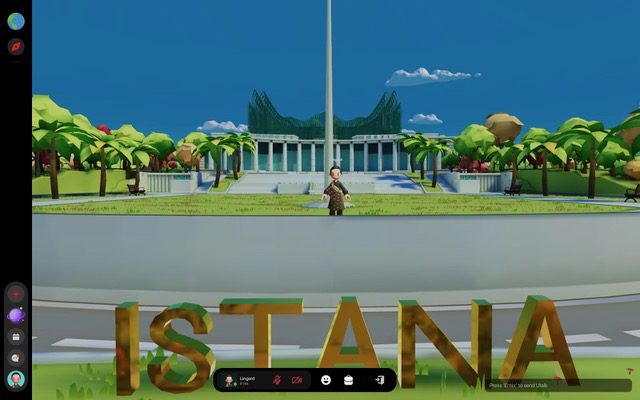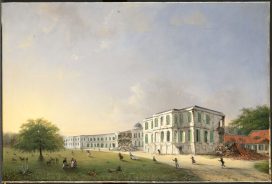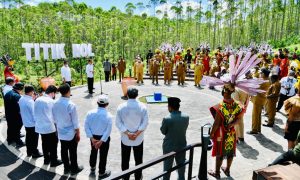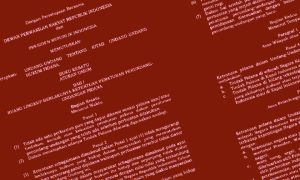Nothing grabs headlines quite like the announcement that a country intends to build a new national capital. Unlike other news of upcoming events—when the G7 will meet, who will attend the COP26 climate summit, or how OPEC will adjust production targets—announcements about purpose-built capitals are aspirational, not predictive. Because of that, they elicit both oohs and aahs – praise for the vision and disbelief that the city will ever be built.
Let alone that an entirely new city will materialise in such an unlikely location. Canberra was built from scratch in the bush, Brasilia in the middle of the Amazon, and Naypyidaw among rice paddies and sugarcane fields. That a new capital is “purpose-built” signifies that its sole function is to be the seat of state power, intentionally removed from the corrupting influences of finance and business, far from potentially disruptive student demonstrators, and of course free from the embarrassing eyesores of squatters and slums.
Bridging historical archives and earthquake hazard studies in Indonesia
Historical records complement studies of seismic hazard and are an important standalone tool for the study of earthquake hazards.
On the other hand, the press provided enthusiastic coverage of the interest expressed by foreign investors and the president’s promises that technology would allow the new capital to leapfrog into a future beyond fossil fuels, that 5G systems would enhance connectivity, and that an urban forest would churn out pure oxygen (though in fact Softbank rescinded its offer and new trees will take decades to grow). The president’s promise that the capital, now named Nusantara, would move from Jakarta to the new site by the end of his second term in late 2024 was scuttled by delays in the passage of enabling legislation, the Covid-19 crisis, and of course the logistics of creating even the most basic infrastructure before actual construction of government buildings could begin.
Perhaps less noted is a more recent pronouncement about Indonesia’s planned new capital. At the end of the G20 Summit in Bali in November 2022, President Jokowi told his international visitors he had one more announcement to make: Nusantara was being launched in Jagat (meaning World), Indonesia’s own virtual platform (though accessible through Mark Zuckerberg’s US$15 billion folly, the Metaverse).
Speaking through an avatar projected on a giant screen, Jokowi explained that the virtual Nusantara will synchronise with the construction of the actual capital, including in areas of city planning, architectural design and governance. Beyond that, he stated, “The young generations of Indonesia need to unite to shape the future of our country’s digital and real economies. Let’s build Nusantara together through innovation and creativity.”
Curious, I registered, created an avatar (named Lingard), and a moment later found myself in the virtual Nusantara. More precisely, I found myself on an access road, above which loomed the glistening Garuda-shaped, glass palace and below an orange road barricade, perhaps to prevent visitors from entering a virtual construction area.
A short walk uphill brought me to a wide garden in front of the palace. There were a few other visitors – among whom I noted Tomato, Bambie, Donat, and Benefits. When avatars get close enough, you can hear each other speaking, or simply eavesdrop. As our avatars converged, I decided it was best not to make friends with Benefits.
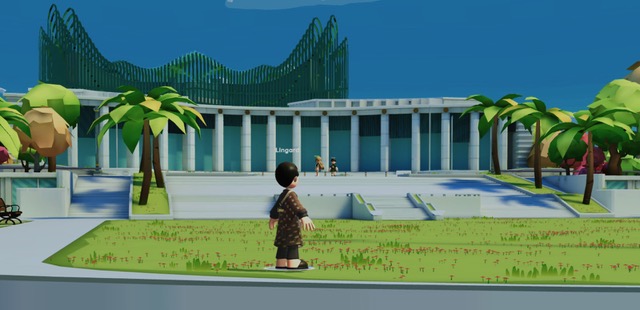
Aside from the visitors, one cannot help but think about what is absent. There are no contractors cutting corners. There are no land speculators. And there are no migrant workers brought in from other parts of the country to level land with virtual backhoes, mix sand and cement in virtual batch mixers, or tie rebar for virtual construction.
With little to do at the Palace, one quickly discovers that Jagat is not one but two worlds: the second being the Plaza – a glorified shopping centre. A cosmetics store, Sociolla (which has brick and mortar stores in Jakarta and other Indonesian cities), promises that you will be “glowing soon.” A second online space called Noice is advertised as “a place to share audio content,” which, perhaps to attract influencers, allows limitless livestreaming. There is a virtual arcade, called Playland, and a movie theatre, though movies did not seem to be showing. Finally, there is an art gallery called Personalia, where the visitor finds a bouncy castle and yellow construction helmets suspended in air, as if gravity has been turned off.
What, then, are we to make of a simulacrum of an envisioned capital with, at the time I entered, a mere thirty-seven visitors? If we are to take the president at his word, the virtual Nusantara is intended to enable young Indonesians to identify with the future they have been promised and, perhaps at some stage, even to participate in the design and operation of their new capital.
At second glance, the cynic might be tempted to conclude that the virtual capital in Indonesia’s first virtual world is nothing more than an admission that Jokowi has neither the time nor the money to construct the actual capital, which one minister has already admitted will take decades to complete.
But the real question may be whether the state-owned enterprises and private sector developers already circling like vultures for government contracts will be enticed to announce their presence by “buying” real estate or advertising in Jagat, and whether the many opponents of the planned new capital will decide it is worth their effort to put up banners expressing concern about environmental degradation, the lack of job opportunities for locals, and the backdoor business dealing that will invariably emerge over the decades ahead.
In a world in which so many now seem to live in online, perhaps we should hope that capital and its opponents will come face to face as avatars.
 Facebook
Facebook  Twitter
Twitter  Soundcloud
Soundcloud  Youtube
Youtube  Rss
Rss 